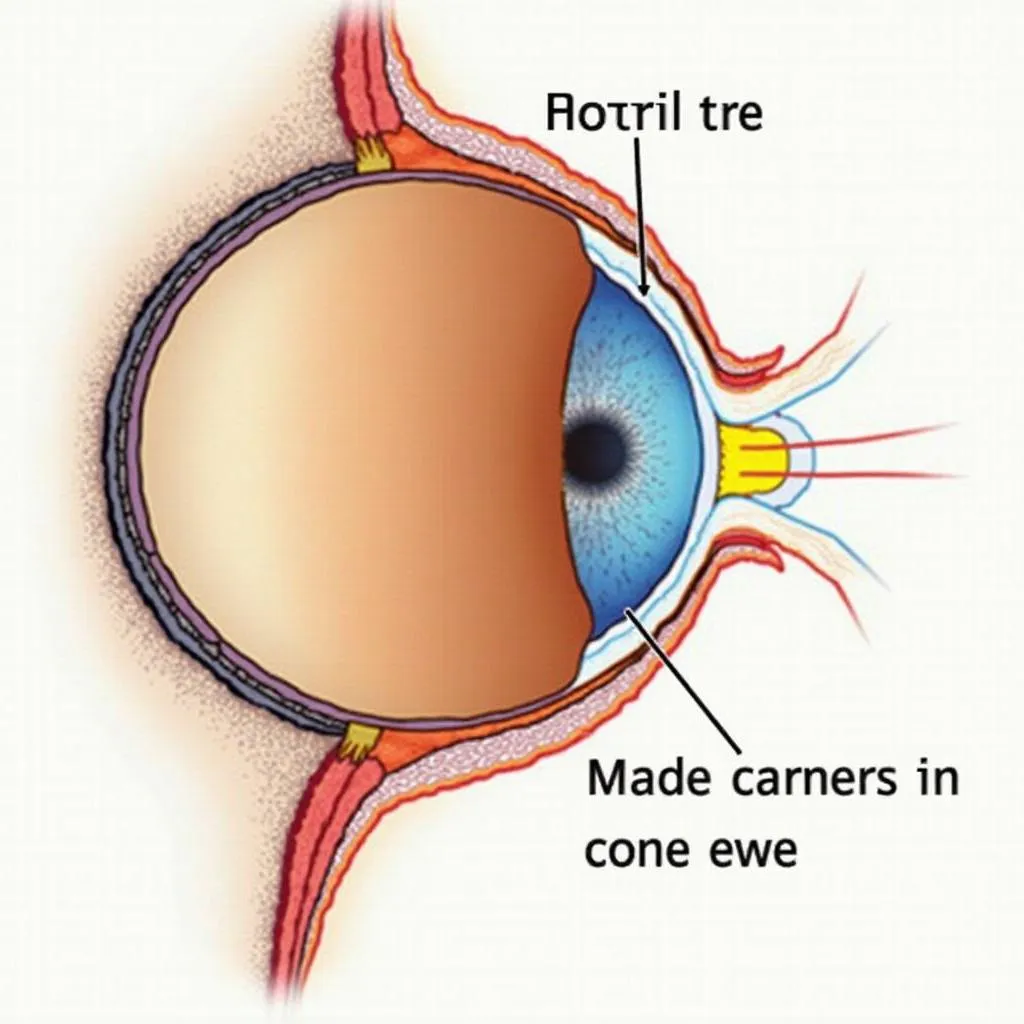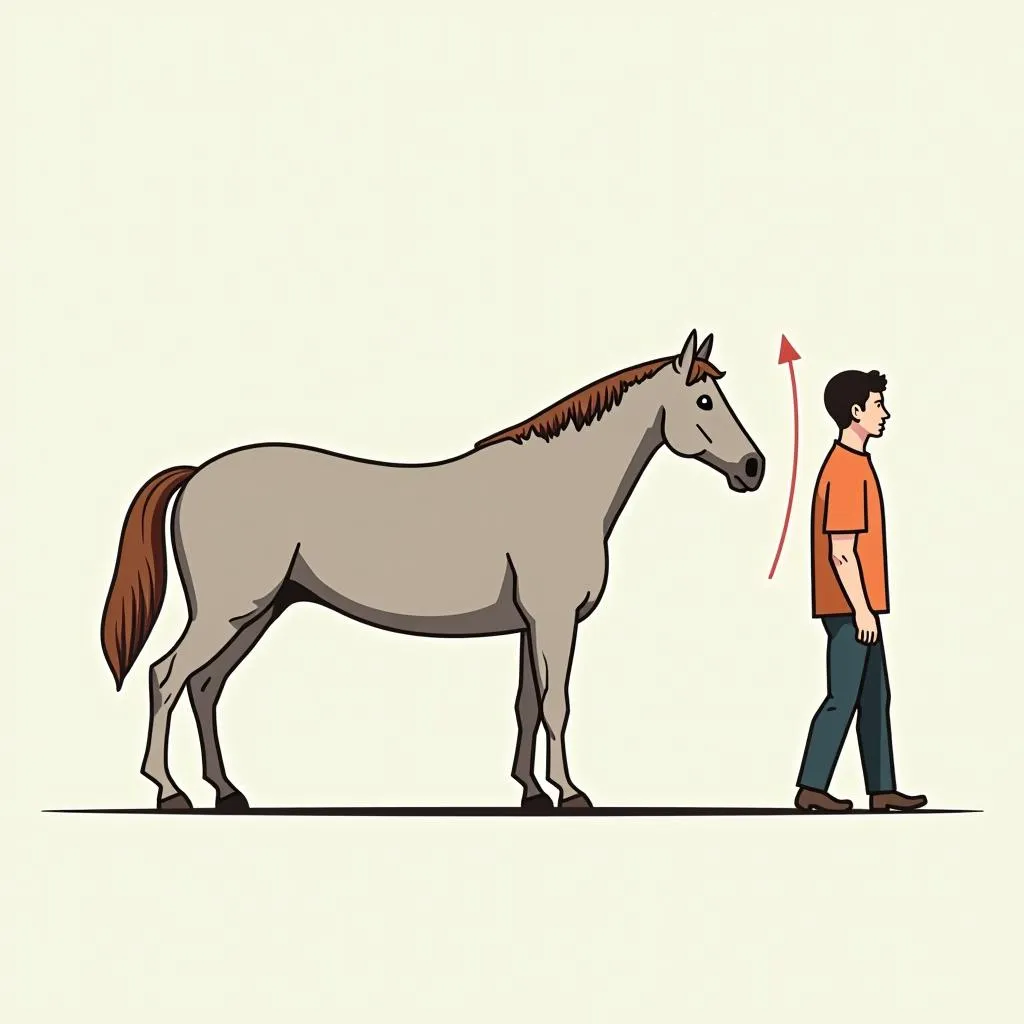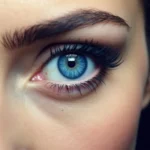Understanding how horses perceive the world around them, including their vision, is crucial for any horse owner or enthusiast. One of the most common questions is about their color vision: what colors can horses see? While they don’t see the world in black and white as some believe, their color vision differs significantly from ours.
Deciphering Equine Vision: It’s Not Black and White
Contrary to old myths, horses do not see in monochrome. They have dichromatic vision, meaning their eyes contain two types of color-sensing cone cells. Humans, being trichromats, have three types, allowing us to see a broader spectrum of colors.
So, what does this mean for a horse’s color perception? Imagine looking at the world through a filter. While they can distinguish some colors, their ability to differentiate between subtle shades is limited.
What Colors Do Horses See Best?
Horses see blues and greens most vividly. They can also perceive yellows, but reds and oranges appear more muted, closer to shades of brown or gray. This limited color range explains why many horse jumps are designed using bright blues and yellows – these colors stand out most clearly to a horse’s eye.
 Horse Eye Anatomy
Horse Eye Anatomy
The Importance of Contrast for Horses
More than specific colors, contrast plays a vital role in a horse’s ability to navigate their environment. They can easily discern between light and dark shades, making sharp contrasts crucial for their safety. This is particularly important when considering stable design, arena setup, and even the colors of clothing worn by riders.
Do Horse Colors Affect Their Vision?
Interestingly, the color of a horse’s coat does not impact its vision. Whether a horse is a chestnut, bay, or palomino, they all perceive colors the same way.
Horse Vision: Beyond Color
While color perception is a significant aspect, it’s important to remember that horses rely on other visual cues as well. They have excellent night vision, surpassing that of humans, thanks to a higher concentration of rod cells in their eyes. Additionally, their wide-set eyes provide a panoramic field of view, allowing them to detect movement from almost any direction.
 Horse Field of Vision
Horse Field of Vision
Conclusion
Understanding how horses perceive color is not just a matter of curiosity; it’s about ensuring their well-being and safety. By designing their environment and interactions with them in a way that considers their visual capabilities, we can create a more harmonious and secure experience for both horses and humans. To learn more about horse characteristics, you can explore how many horse colors are there.
FAQs
1. Can horses see in the dark?
Yes, horses have excellent night vision due to a high number of rod cells in their eyes, which are more sensitive to light.
2. Why do horses shy away from certain objects?
Horses may shy away from objects they perceive as threats due to their limited color vision and reliance on contrast. What appears harmless to us might seem like a sudden, scary obstacle to them.
3. How can I make my horse feel safer?
Creating a predictable environment with clear visual cues, using bright, contrasting colors, and approaching them calmly can help horses feel more secure.
4. Does my clothing color matter when riding?
While it’s not crucial, opting for light or bright colors when riding can increase your visibility to your horse, especially in low light conditions.
5. What are the limitations of horse vision?
Horses have a blind spot directly in front of their nose and directly behind them. They also have difficulty with depth perception.
6. Can horses recognize their owners?
Yes, horses can recognize their owners and familiar humans through a combination of visual cues, sounds, and smells.
7. Are there any health issues that can affect a horse’s vision?
Yes, various eye conditions, such as cataracts and uveitis, can impact a horse’s vision. Regular veterinary checkups are essential for early detection and treatment.
Need Help With Your Horse’s Environment?
Contact us at Phone Number: 0373298888, Email: [email protected] or visit us at 86 Cầu Giấy, Hà Nội. We have a 24/7 customer support team ready to assist you.

